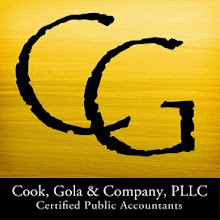It all comes down to the amount of time a firm and its employees must spend gathering support and documentation.
The use of an hourly rate is standard in the industry. Overall audit costs rise as audit hours go up. Why the increased support and documentation? Two words: "new standards."
These new accounting and auditing standards imposed by government regulators are often difficult to interpret. They can be even harder to apply. Some of the more well-known changes include:
- Greater responsibility related to the detection of material fraud
- Gaining a better understanding of the design and operation of a client’s internal controls
- Obtaining specialized knowledge regarding fair value measurements
- Determining the best answer when presented with conflicting guidance in professional literature
- Ask your auditors for a list outlining what documents they will need. He will probably ask for:
- Articles of incorporation
- Debt agreements
- Significant leases
- Minutes of the Board of Directors
- IRS filings
- A company should designate sufficient personnel to the audit. For example, your chief financial officer, controller, accounts receivable manager, accounts payable manager and internal auditor should be available, when needed. During an audit, a company should hold a meeting to introduce the audit form and also develop a joint audit plan that identifies deadlines and materials needed to meet them.
-- LeAnn Carlson



No comments:
Post a Comment